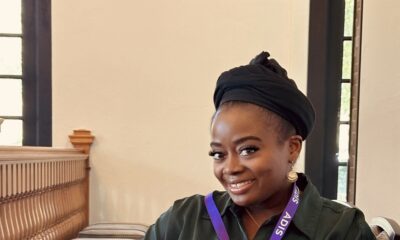Features
Sahndra Fon Dufe: Elevating African Voices and Enriching Futures – My ADIS24 Experience (I)
Advocacy and partnerships are paramount. As the world moves towards decarbonisation, Africa can lead in job creation, particularly through processing industries…
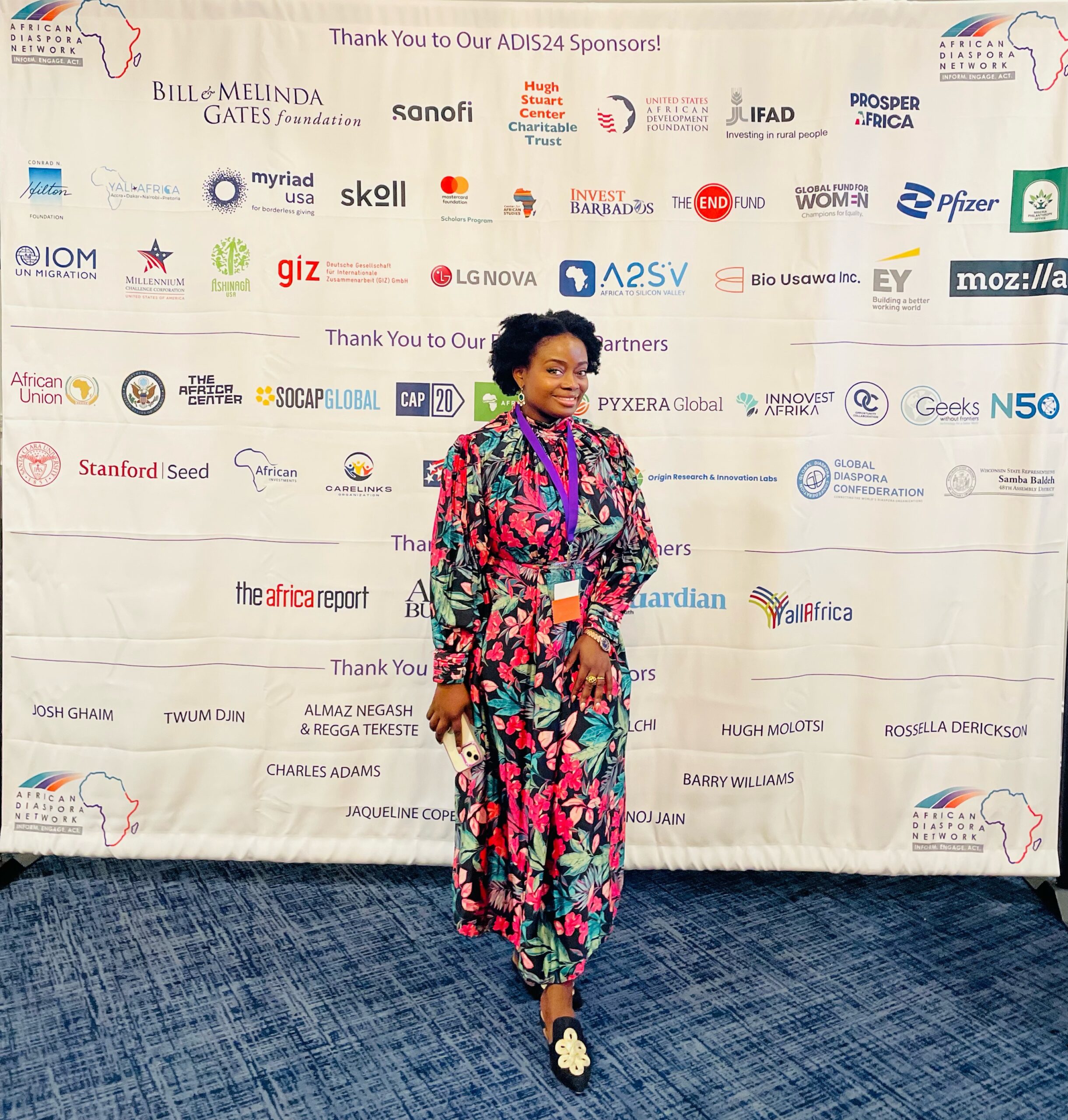
I discovered the African Diaspora Network (ADN) through an IJGB WhatsApp group for “returnees” in Nigeria. What intrigued me about the ADN was the potential for African immigrants to unite beyond traditional affiliations, school sororities, and social interests. ADN welcomes Africans of all backgrounds and even non-Africans as “friends of Africa”. When they announced a coming annual event in March, I was excited to attend.
Attending the African Diaspora Investment Symposium (ADIS24) in Silicon Valley last month was an incredible experience. The event brought together more than 250 impressive individuals from various sectors, including students, entrepreneurs, and other contributors. ADN has been building a network of over 10,000 Africans, diasporans, and friends of Africa from 89+ countries over the past 13 years. They have backed 118 entrepreneurs, and the UN-level diversity they’ve achieved is notable for its lack of bureaucratic red tape. The recent compelling stats and Africa’s steady growth in population, influence, and capital across the Americas, Europe, and Asia have emphasised the importance of diasporan Africans. The event was held in California, and the contrast between Silicon Valley, the realm of tech titans, and the rest of the world is striking. It’s a place where your Lyft is a Tesla, and innovation zooms past you in futuristic Cyber Trucks and gluten-free bread.
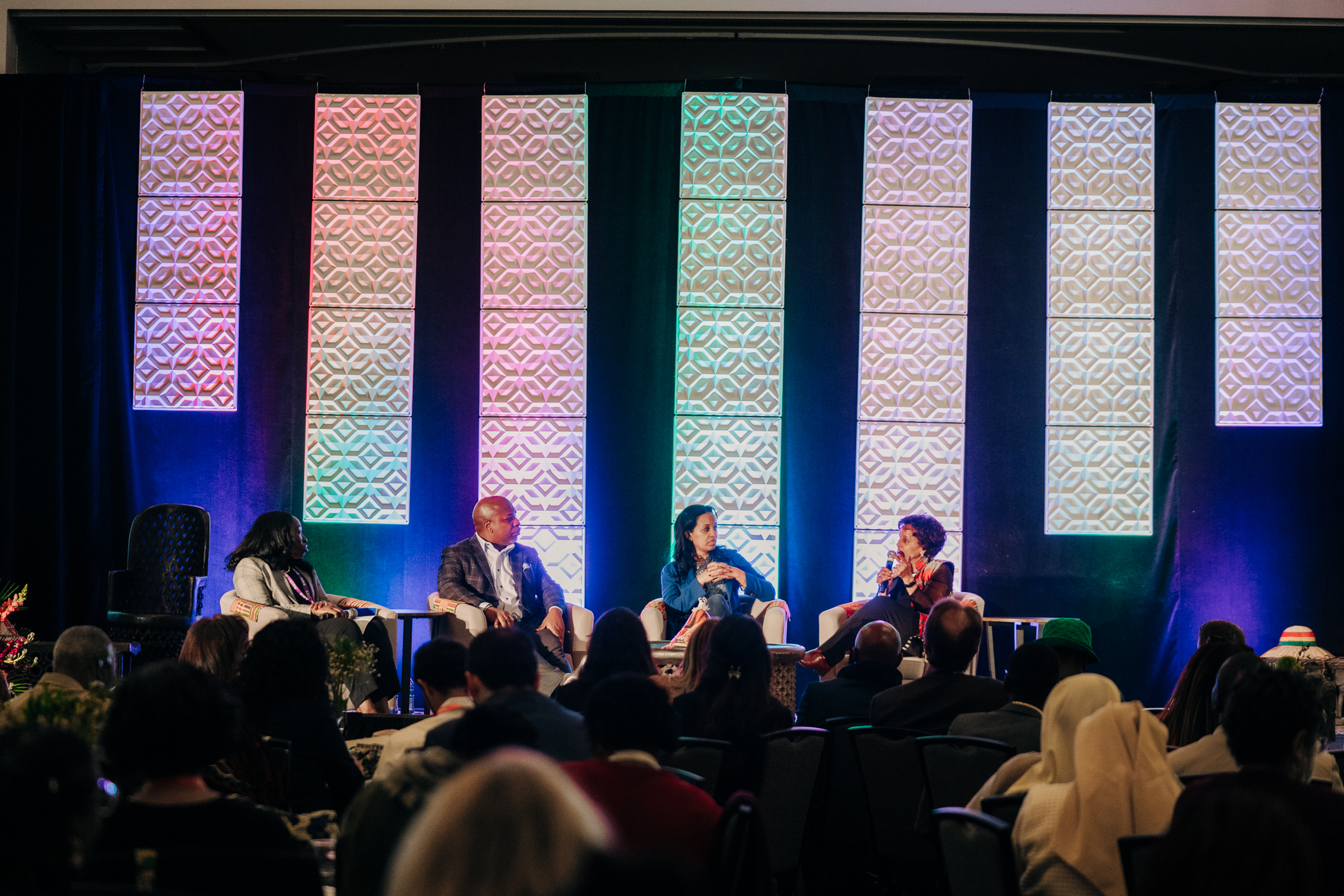
The conference took place over three days at the Hayes Mansion, which is a symbol of an enduring legacy dating back to 1903. As someone from a matrilineal cultural background inspired by Ngonnso’s heritage, I found myself exploring the mansion’s abstract art and rich history. The story of Mary C. Hayes, who nurtured four generations of her family before the City took over, resonated deeply with me. It was a testament to foresight and long-term vision. This spirit of possibility echoed the visionary leadership of Almaz Negash, who was the driving force behind ADN and ADIS. Almaz envisioned the African Diaspora as a source of remittances but also a unified force for change. The atmosphere at Hayes Mansion reflected this vision – luxurious, intimate, and enlightening – setting the stage for an impactful event that left a lasting impression on attendees, both old and new friends of ADN.
This year’s theme, “Activate with Africa: Climate Change, Connections, and Actions,” illuminated pathways for environmental awareness and reform leveraging innovations across our continent. The discussions centred around ways to create environmental awareness and promote sustainable development in Africa, using innovations across the continent. The event raised some important questions such as how to unite the African diaspora, continental Africans, and allies to achieve sustainable development, how to improve infrastructure, market vitality, and community well-being.
Day one, hosted by the vibrant Paddy Siyanga Knudsen, featured a captivating panel. In a rosy, flowery frock by Nigerian designer Debra’s Grace, I immersed myself in discussions on “Beyond Remittance,” backed by compelling data. Remittance flows to Sub-Saharan Africa surged by 6.1% in 2022, totalling $53 billion. Notably, robust growth was observed in Ghana (12%), Kenya (8.5%), Tanzania (25%), Rwanda (21%), and Uganda (17%)- according to the World Bank.
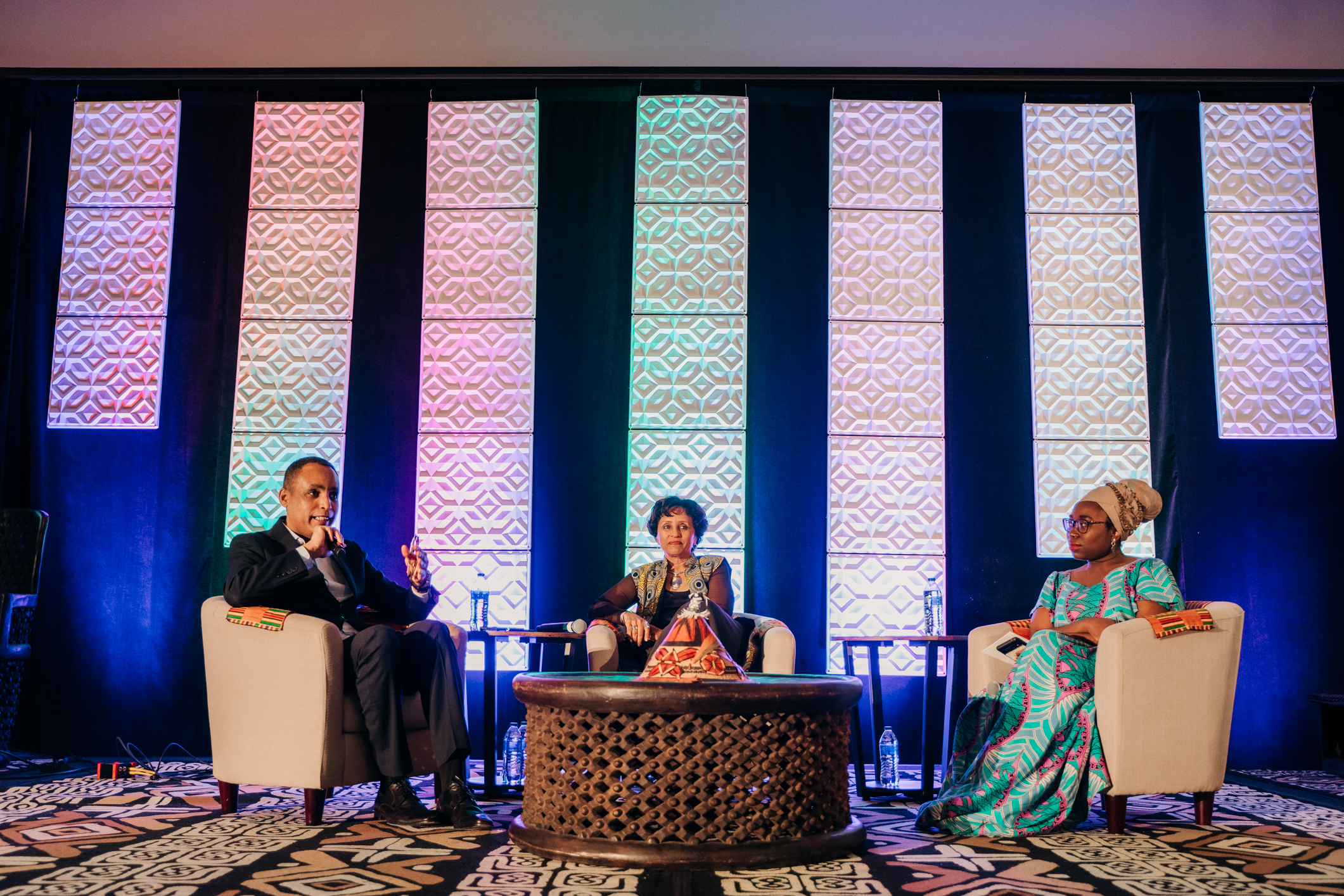
During a vibrant session on diaspora-driven innovation in Africa, Almaz hosted notable colleagues like Deniece Laurent-Mantey, Mimi Alemayehou, and C.D Glin, the president of Pepsi Foundation. They shared insights from ongoing recent townhouse engagements across the U.S., gathering diaspora ideas on education, investments, and entrepreneurship under the council’s umbrella and adopting a “with Africa” approach, instead of for Africa, in all foreign policy engagement and partnership. When asked about the inclusivity of the diaspora, Almaz said, “The diaspora is inclusive of all Africans, descendants taken 600 years ago, African immigrants, their children, Haiti, and friends of Africa. My life is possible in this country because of the suffering of those who came 600 years ago. The African Americans who opened the door for me.”
Fear of the unknown is a significant deterrent to foreign direct investment (FDI). Investors sometimes require a better understanding of the African continent before making any investment decisions. Therefore, the diaspora is the U.S. Government’s avenue to engage Africa. Reflecting on her time at OPIC (now USDFC) during the Obama era, Mimi witnessed the African diaspora’s “odogwu” abilities, which turbocharged the portfolio from $1 billion to a whopping $4 billion. She emphasised that diasporans were the continent’s ultimate partners.
My favourite thing about the fully packed schedule was the high quality of speakers and topics heralding the space. In one session, the International Organisation of Migration (IOM) discussed the diaspora’s influence on climate change. In another, Dr. Ndjideka Okonjo-Udochi, and Dr John Nkengasong discussed leveraging technology for social impact. One panel focused on women empowerment in STEM fields, where I learned about the challenges and triumphs of women breaking barriers in traditionally male-dominated industries. In another, a small contingent from the Nigeria Office for Philanthropy and Impact Investing unveiled i-philanthropy; President Tinubu’s global push to raise $200 million in start-up capital for grants and non-financial investment support to qualified MSMEs, with 50% focused on women in business.

I particularly loved that youth empowerment emerged as a significant focus at ADIS24. ADN’s partnership with Arizona State University, facilitated by the Young African Leaders Initiative Legacy Localisation (YALI LL) USAID $80 million award, marks a crucial step in empowering Africa’s next generation. Through mentorship and resource sharing, the diaspora should play a pivotal role in this project by working with the ADN to nurture future leaders.
Advocacy and partnerships are paramount. As the world moves towards decarbonisation, Africa can lead in job creation, particularly through processing industries in countries like the DRC and Zambia. This not only creates employment but also enhances capacity-building. Building an extensive network of collaborators, including those in legal and entrepreneurship, akin to the ecosystem seen in Silicon Valley, will further fuel Africa’s progress.
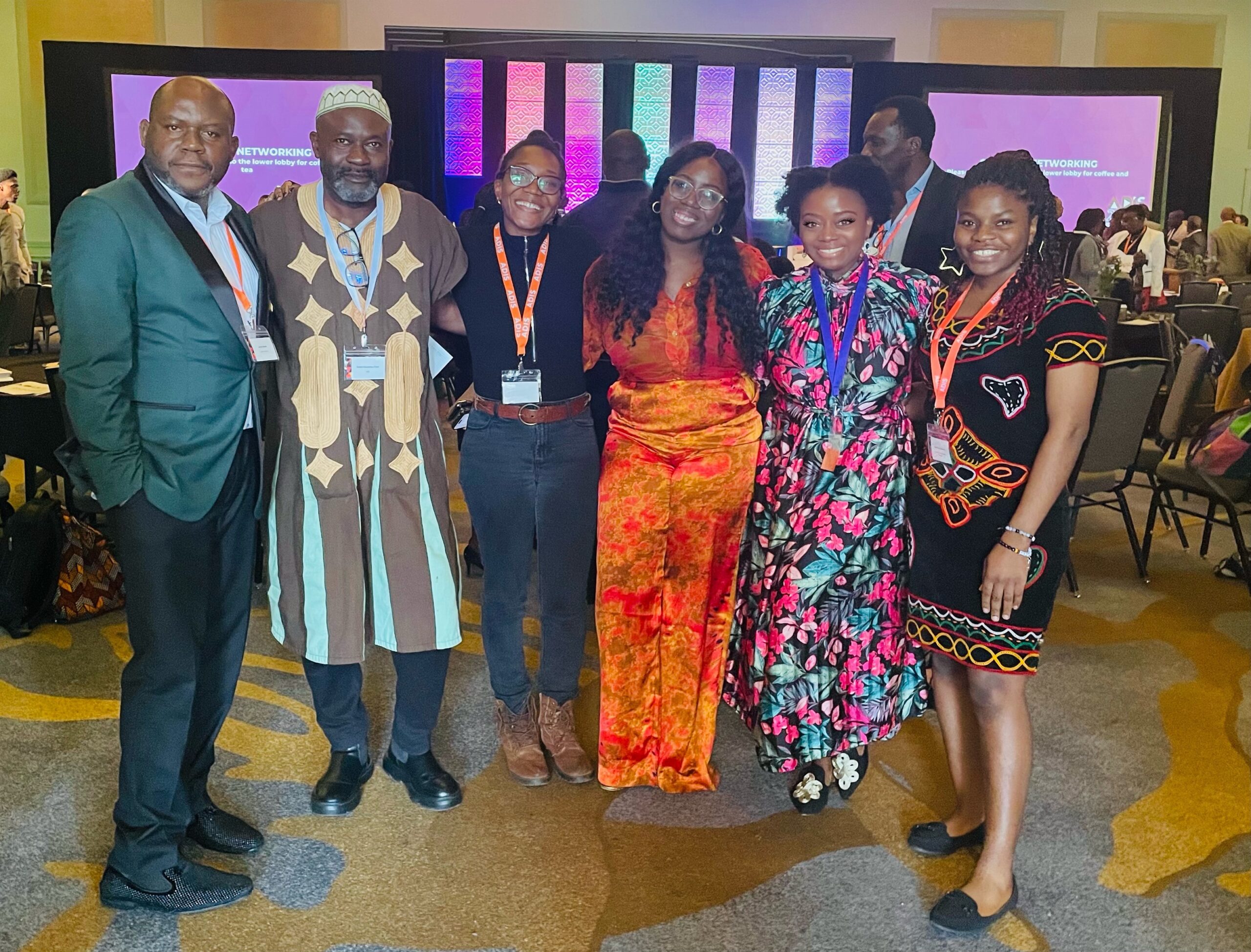
Of course, the day wouldn’t have been complete without my country people – the Cameroonians – coming together for a spontaneous photo shoot showcasing our traditional dress, the Toghu worn by some Cameroonian attendees.
I admired the electric atmosphere of support for the diaspora’s investments, intimacy, gratitude, and kindness that filled every room. Titles vanished as high-ranking individuals became “aunties” and “uncles,” fostering immediate connections, information sharing, and new friendships. In the words of Nicholas M, Bassey, Deputy Vice President of Congressional & Public Affairs, Millennium Challenge Corporation, “ADIS keeps getting better, without losing its intimacy.”






